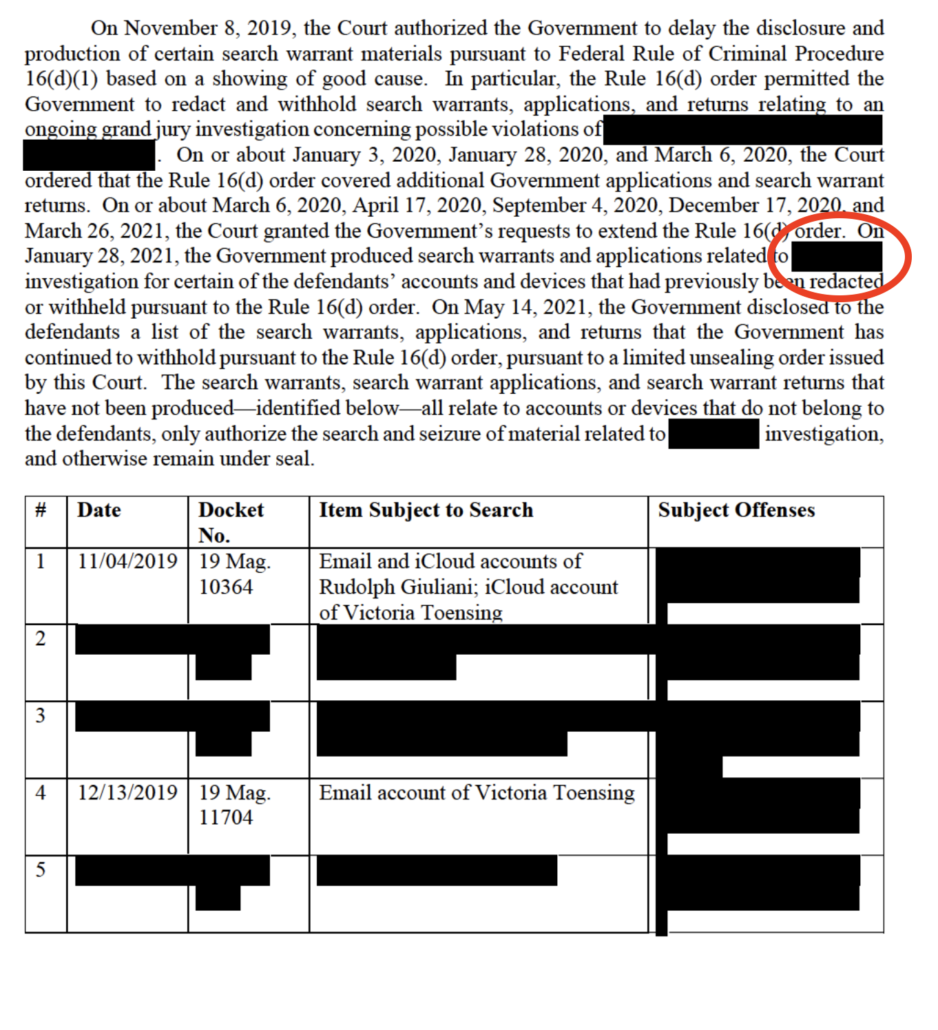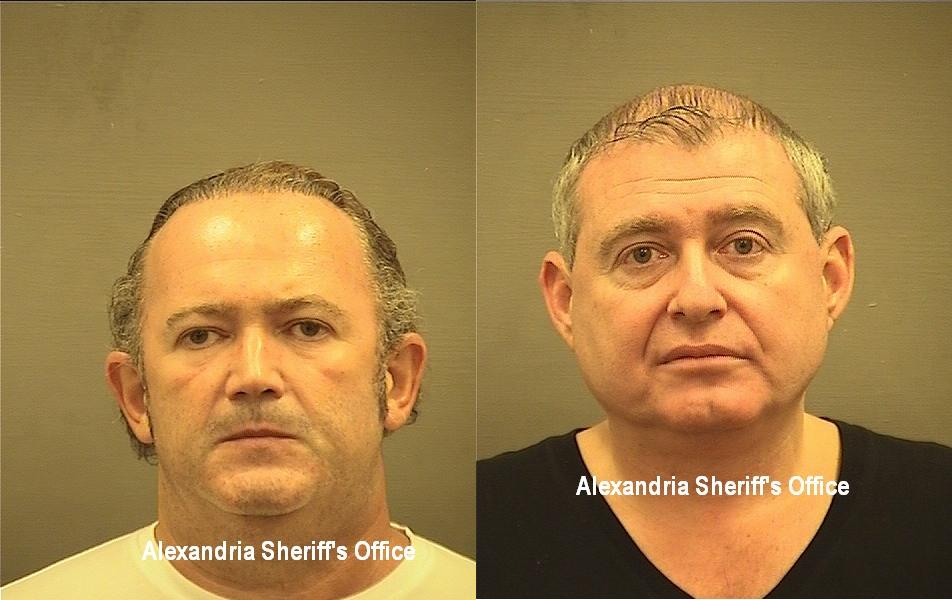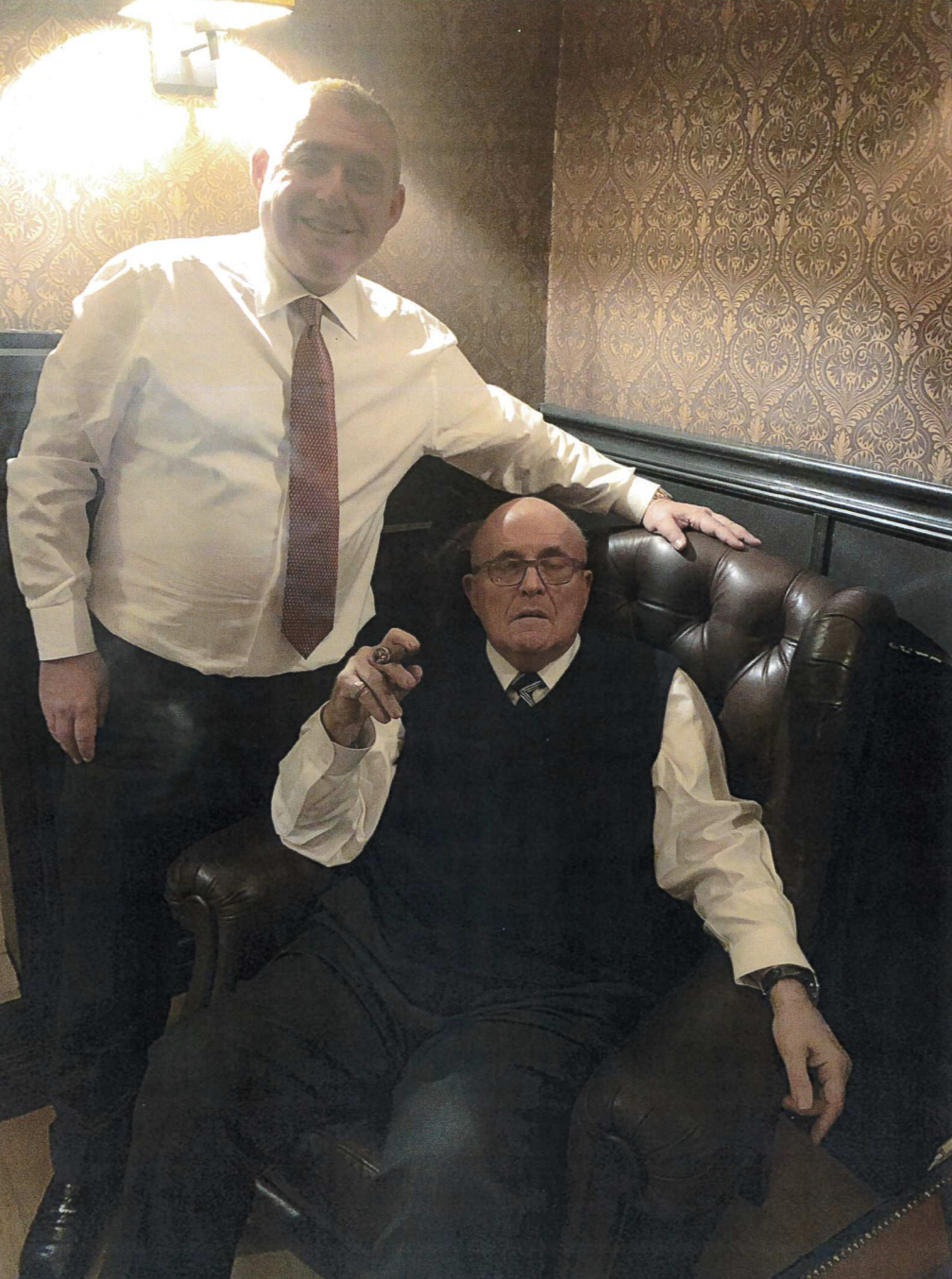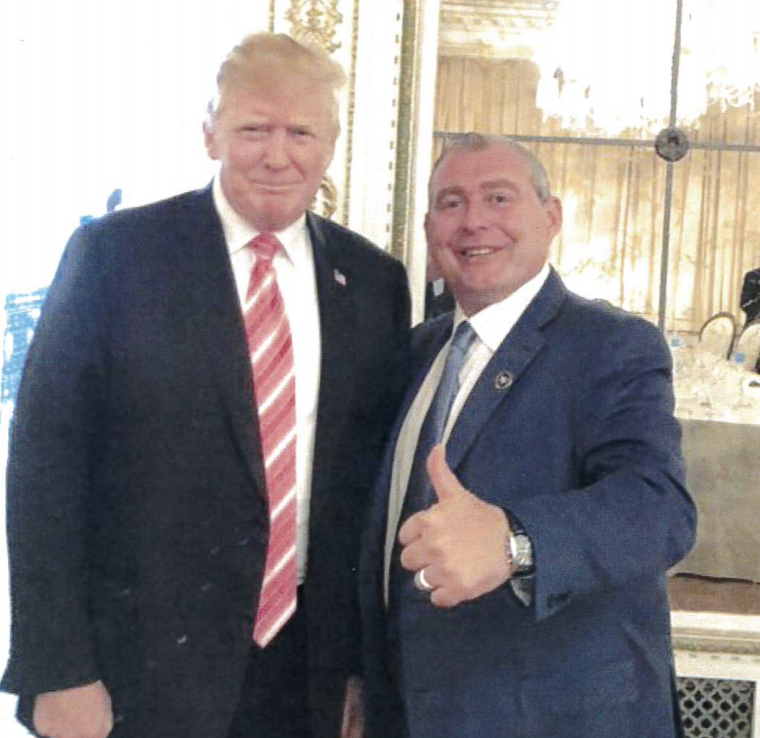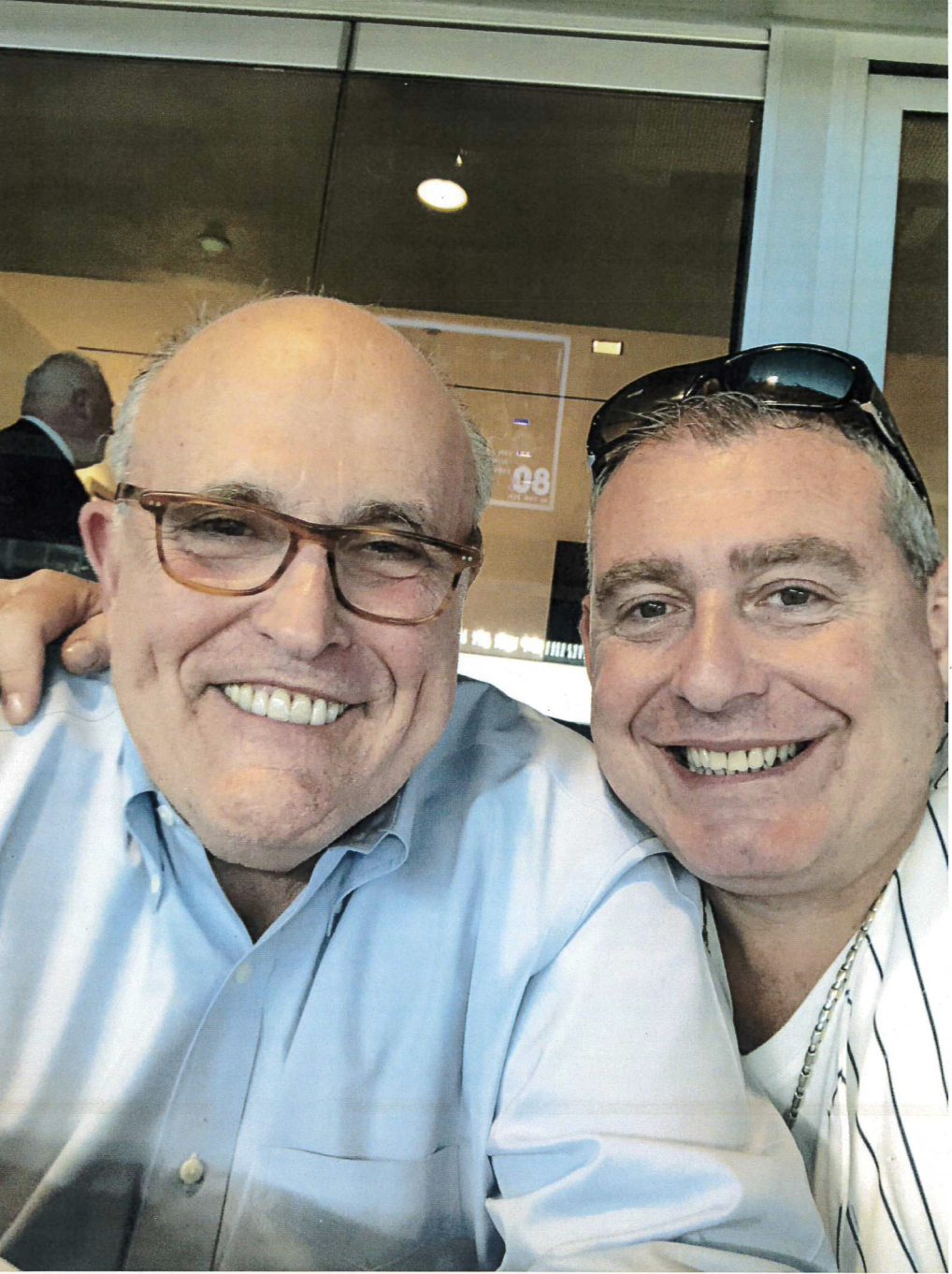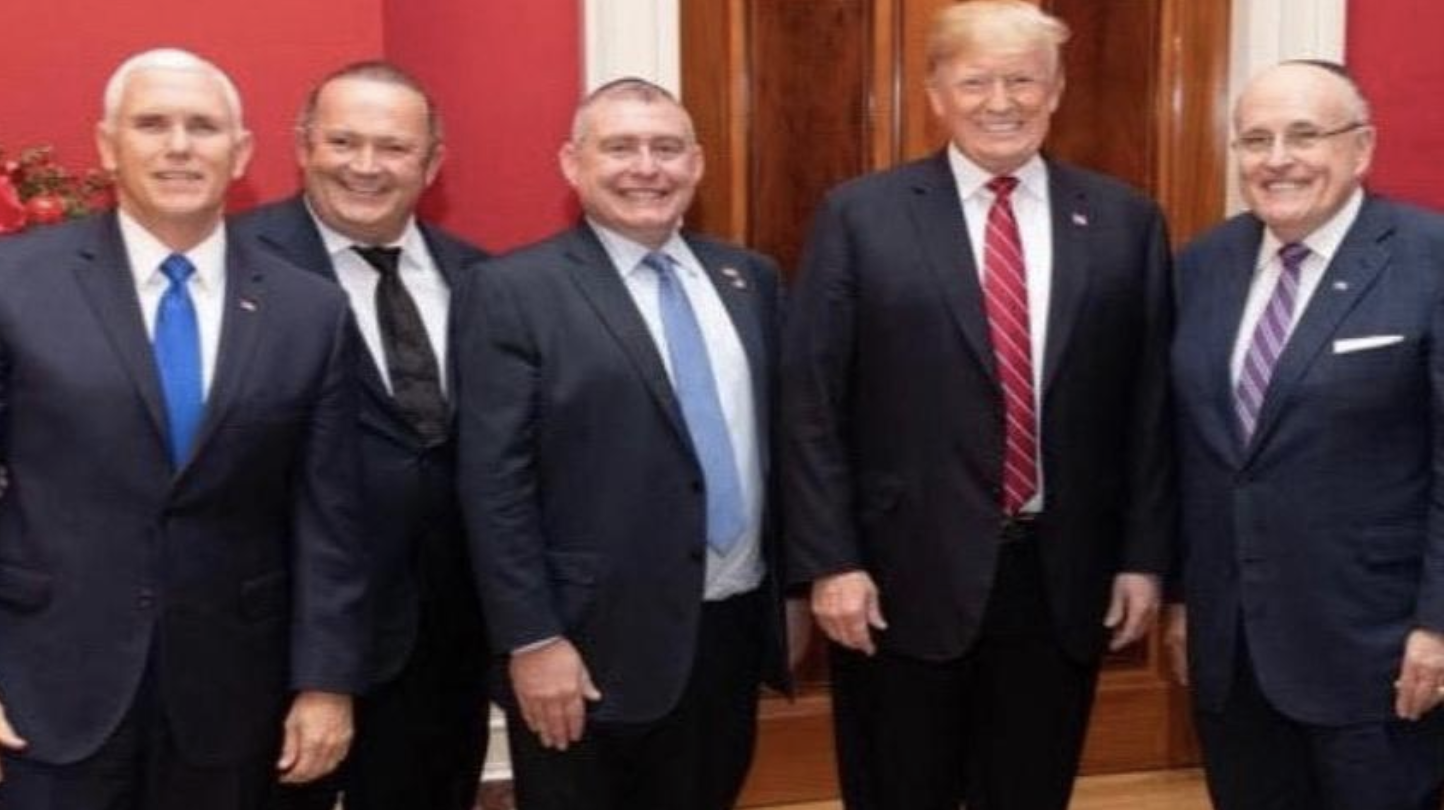Lev Parnas Finally Gets His Rudy Documents — But Not the Way He Wanted
A filing in the Lev Parnas case reveals that Parnas is finally going to get the Rudy Giuliani files he asked for in May.
Yesterday, the lawyer for Andrey Kukushkin wrote asking for another delay in the trial currently scheduled to start on October 4. His request was largely COVID-driven, but he also revealed that the government had just informed him that they were providing more discovery which, he claimed, he wouldn’t have time to review.
Finally, we have just come to learn that the government has not yet completed Rule 16 discovery. Monday night the government, among other things, advised the defense that it required a new storage device capable of holding 64GB of data to make another production of unidentified discovery materials, the 11th so far. We anticipate it being a week before these materials will be in the defense’s possession, if not longer. The defense will require additional time to process, review and analyze these materials, which are in addition to the terabytes of data already received by the defense.
In opposing the request, the government explained that the new discovery was, in part, files from David Correia, the former co-defendant who entered into a cooperation agreement last year, and in part, materials that Judge Oetken had granted the government a Rule 16(d) extension for.
The defendants’ second argument is that an adjournment is necessary because the Government is producing additional materials to the defendants. These materials are being produced to the defendants nearly two months before trial. They will fit on a flash drive capable of holding up to 64 GBs, and the volume of the material is a small fraction of what has been produced to the defendants over the last two years (which represents multiple terabytes of data). The majority of the materials are: (i) records from devices belonging to David Correia, which were not previously reviewed and produced because they were the subject of an appeal that was only resolved after he pled guilty; (ii) materials seized from non-parties that were subject to the Rule 16(d) extension order previously issued by this Court;1 and (iii) images and other multimedia files that were seized from devices that were previously produced in whole or in part. The Government does not believe that all of these materials are discoverable under Rule 16, and in fact the vast majority of the materials have no relevance to the case proceeding to trial in October. To the extent defense counsel has any questions about the material, the Government would be happy to discuss the materials with counsel. The defendants will not be prejudiced by the production of this material now given the amount of time before trial and the relatively small amount of material on the flash drive. Additionally, the defendants will not be prejudiced because any materials the Government intends to use in its case-in-chief from this latest production will be identified in its exhibit list that will be shared with defense counsel later this month.
1 The Government took the position that many of the materials subject to the Rule 16(d) order did not need to be produced in discovery. On May 20, 2021, the defendants requested a conference to address whether the materials were discoverable under Rule 16. The Government opposed disclosure, but represented it would produce a limited subset of material. On July 14, 2021, based in part on the Government’s representations, the Court denied the defendants’ request for the materials. The Government is now producing limited materials from these third parties’ accounts consistent with its prior representations. [my emphasis]
We know the materials withheld under a Rule 16(d) extension are the files seized from Rudy Giuliani and Victoria Toensing’s iCloud accounts (as well as those of some Ukrainians) three ways. First, that’s what Parnas’ lawyer Joseph Bondy demanded in the May 20 request referenced in the footnote. And the government’s response to Bondy’s request explained that Oetken had authorized them under Rule 16(d) to delay sharing the material with the defendants on November 8, 2019. Finally, this is the July 14 order Judge Oetken issued denying Parnas and others the materials.
More interesting than that DOJ has shared these files, though, is what DOJ said about sharing this information more generally. It claims it didn’t have to turn over all these materials and, “the vast majority of the materials have no relevance to the case proceeding to trial in October.”
As a reminder, there are four different alleged crimes at issue. There are these three, the last of which has been severed from the trial due to start in October (these descriptions are from Oetken’s July opinion).
The “Straw Donor Scheme” (Parnas and Fruman): First, the Government alleges that Parnas and Fruman conspired in 2018 to disguise and falsely report the source of donations to political action committees and campaigns, thereby evading federal contribution limits, in order to promote their nascent energy business venture and boost Parnas’s profile.
The “Foreign Donor Scheme” (Parnas, Fruman, and Kukushkin): During the same time period, Parnas and Fruman were working with Kukushkin on a separate business venture: a nascent cannabis business. Among their activities was making political contributions to candidates in states where they intended to seek licenses to operate a cannabis business. The Government alleges that Parnas, Fruman, and Kukushkin conspired to disguise a one-million-dollar contribution from a Russian national to evade the prohibition on political contributions from foreign nationals.
The “Fraud Guarantee Scheme” (Parnas): Parnas was also working with David Correia on pitching another business venture to be called “Fraud Guarantee.” The Government alleges that Parnas and Correia defrauded several investors in Fraud Guarantee by making material misrepresentations to them, including about the business’s funding and how its funds were being used.
In addition, there’s an allegation relating to Yuri Lutsenko’s efforts to get Marie Yovanovitch fired, which was included in the first indictment but taken out in the superseding one.
[T]hese contributions were made for the purpose of gaining influence with politicians so as to advance their own personal financial interests and the political interests of Ukrainian government officials, including at least one Ukranian government official with whom they were working. For example, in or about May and June 2018, PARNAS and FRUMAN committed to raise $20,000 or more for a then-sitting U.S. Congressman [Sessions],
[snip]
At and around the same time PARNAS and FRUMAN committed to raising those funds for [Sessions], PARNAS met with [Sessions] and sought [his] assistance in causing the U.S. Government to remove or recall the then-U.S. Ambassador to Ukraine.
The government says the vast majority of these materials don’t relate to the case being tried in October. That means these materials might pertain to Parnas’ Fraud Guarantee case — and indeed, the David Correia files almost certainly pertain to that. It makes sense that files seized from Rudy might pertain to Fraud Guarantee, too.
More interesting still, they’re highly likely to pertain to the Lutsenko charge given that that was the subject of the warrant obtained to seize them (and both the government and Oetken made clear that the government adhered closely to the scope of the warrant in searching through the materials).
That means a substantial amount of what the government is sharing is discovery on the additional charges Fruman and especially Parnas face, after they’re done with October’s trial and even after Parnas is done with a second, Fraud Guarantee trial. The government is effectively showing Rudy’s grifters what they have to look forward to in a Foreign Agent case involving Rudy Giuliani.
This is, almost certainly, an effort to convince them to plead guilty and flip on Rudy, which explains why the government is so intent on keeping the trial scheduled for October, to increase the pressure on the grifters.


